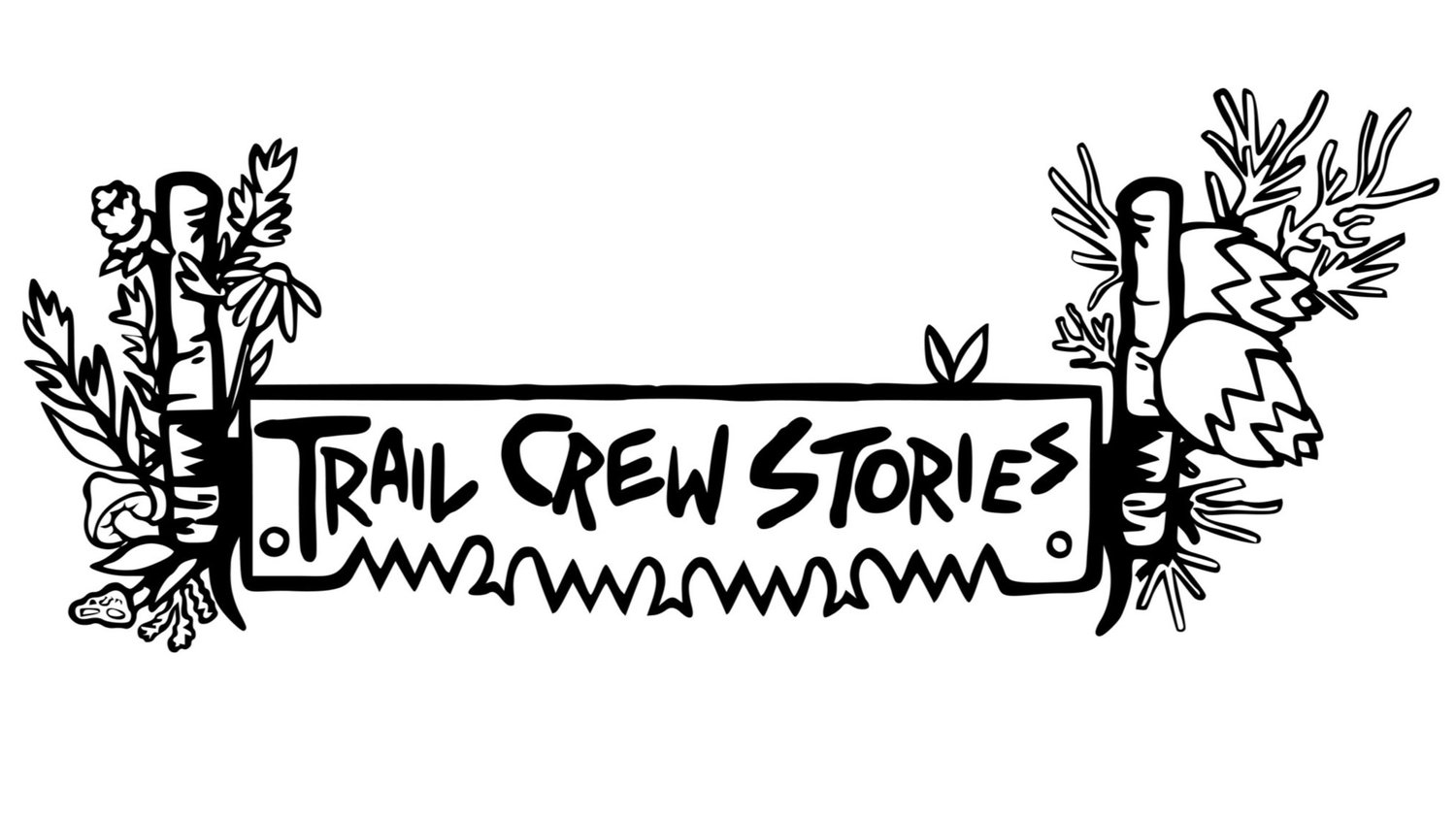“Crosscut” traverses a life-changing season through poetry.
I’ll admit that I often have a hard time immersing myself in poetry. Perhaps social-media-induced brain rot has ruined my ability to read in the slow, intentional manner that poetry demands, or perhaps it’s because I quickly tire of the sort of wistful dithering that often characterizes the medium. Crosscut, by Sean Prentiss, sat on my desk for far too long. But after a few weeks of its attractive cover staring at me longingly, I started nibbling away at it, and those nibbles soon turned to chomps, and I devoured the 100-page compilation before my second coffee got cold. The book sucked me in, probably because it reads like a story, and definitely because the scenes and emotions feel viscerally tangible to anyone who has worked on a trail crew.
Crosscut is a memoir of the author’s personal journey as a trail crew boss for Northwest Youth Corps (NYC). Chronologically, the stories detail a single season, but the first and final poems of the book remind us this is a retrospective Prentiss wrote years after leaving NYC. Imbued throughout is a sense of the hindsight gratitude—what some might call wisdom—that only becomes clear to us years after those kinds of formative experiences.
Prentiss takes us along the season’s progression, which begins with accepting the job offer (“Retreat”) and buying his first pair of boots (“Logger Boots”). He also introduces us to his uniform in “Hickory,” a term which echoes in later poems, taking on layered meanings like stains on a patchwork shirt.
Seventeen days ago I bought
this starched shirt
at Hobi Logger Supply
in Roseburg for $20–one-fifth
a day’s labor, but now
it is listless like morning fog, reeks
of chainsaw exhaust, Dutch-
oven dinners, mildew from cascades
of spring rain, earthen odors.
As I slid this hickory on
During another predawn bleating,
I consider maybe never
washing this ruined hickory.
As the season progresses, poems introduce us to his crew (“The Trails of our Lives”), the tools, the clothing, and the routines of a backcountry trail crew. He takes us from Whiskey Creek, Oregon, where his crew cleared trails, to whiskey-soaked dive bars, where he and his fellow leaders would gather to unwind between projects. In poems like "Hitch" and "Beard," the recursive structure immerses us in a world where deepening fatigue and lengthening beards rather than a Gregorian calendar mark the passage of time.
I think another reason I enjoyed it so much was the accessible language. Everyday words convey a simplicity reminiscent of Mary Oliver or Gary Snyder. Clever verb-ification of nouns, such as “rivering” and “phoenixing,” is potent. While there are a couple allusions to The Epic of Gilgamesh, these are similar in number to mentions of Rainier Beer. There’s even a glossary of trail terms in the back of the book for readers who come from outside the Trails world.
In my reading, the most gripping arc of the story is that of heartbreak, which is told through the author’s struggles with managing a long-distance relationship while working and living in the wilderness. In between the localized moments of sublimity and crew conflicts, we feel the author’s lonely and ultimately futile effort to maintain a connection to a lover living a more conventional urban lifestyle. It is a situation many trail workers, myself included, have found ourselves in. The last lines of “Pay Phone” introduce this tension that further grows in later poems:
Tonight I am drunk on summer, on fatigue,
on the task ahead. My hand strokes the coiled cord
as I listen to her phone ringing, unanswered.
Poem after poem, I felt I was getting to know Prentiss and his crew, wondering what would happen to them around each bend of trail and turn of page.
It’s hard not to wonder if Crosscut is also an incidental snapshot of an era that may be nearing its end. Just in a few weeks since the time of this writing, the Trump Administration started dismantling the agencies and federal funding streams that provide support to youth conservation corps like Northwest Youth Corps. This could prove existential crises for many of these organizations.
While it is difficult to read these poems without considering the current state of environmental work, they still feel like a gentle respite from the doom and gloom. In Crosscut, Sean Prentiss saturates our senses with the ding of a rock bar, the reek of loam, and the feeling of a well-oiled Pulaski handle. It is a welcome escape to a world which, despite feeling delicate and distant, is still out there. I’ll admit I gobbled these poems like dinner after a long day on trail, but now it's time to go back and savor them, leaving this humble volume well worn.
~~~
Prentiss, Sean. Crosscut. University of New Mexico Press, 2020.
From the cover:
“Sean Prentiss takes readers into what it means to be a rookie trail crew leader guiding a motley collection of at-risk teens for five months of backbreaking work in the Pacific Northwest. In this memoir-in-poems, Prentiss shares a music most of us will never experience, set to tools swung and sharpened, backdropped by rain and snow and sun, as individuals transform into crew.
Sean Prentiss is an associate professor of English at Norwich University. He is the author of Finding Abbey: The Search for Edward Abbey and His Hidden Desert Grave (UNM Press). He lives with his family on a small lake in northern Vermont.”

